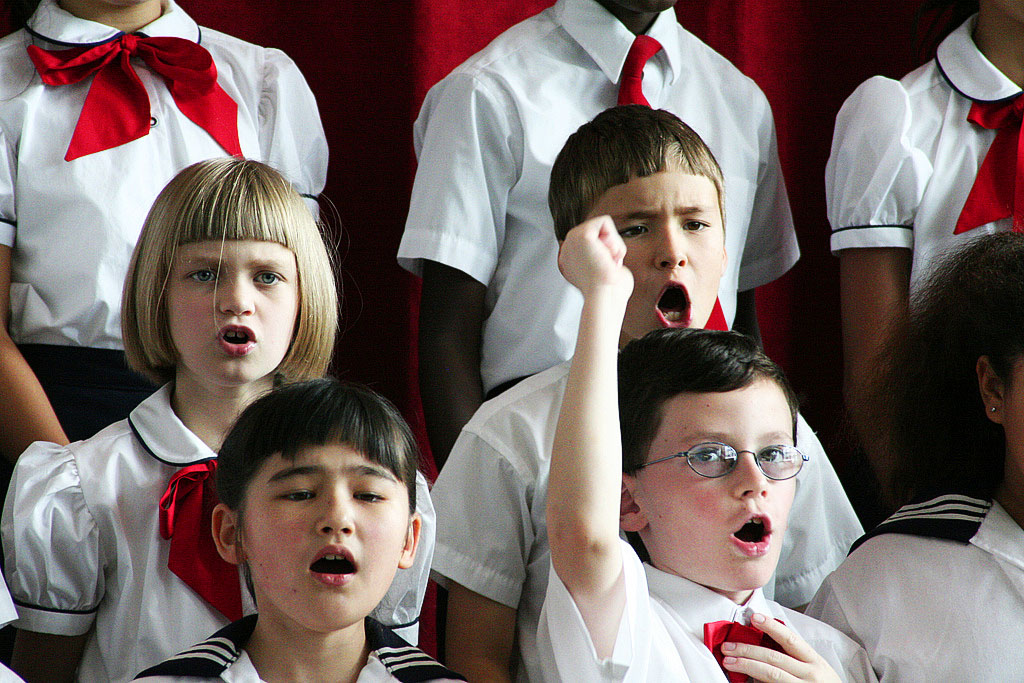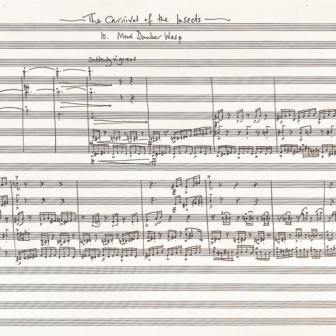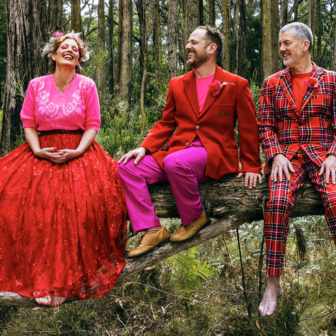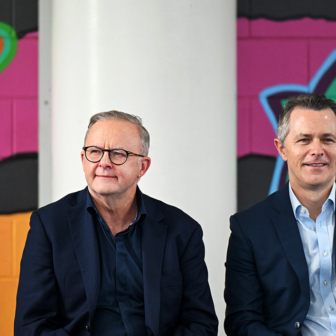In my first week at grammar school I joined the choir. This wasn’t because I wanted to; the music master auditioned all the new boys (there were no girls) and anyone who could hold a tune was told to be at the Small Hall the following Wednesday lunchtime. On arrival, we were handed copies of Fauré’s Requiem, and by the end of that half-hour rehearsal I had had my first taste of following a vocal score, singing in harmony and singing in Latin.
This school in southeast London was a little out of the ordinary, state-funded but subsidised by a foundation run by the Church of England. It was privileged, certainly, but there were no fees. The only price exacted was in the form of two religious assemblies a day, at which the choir sang an anthem or an a cappella four-part setting of the Lord’s Prayer. It was what you’d call a musical school.
The music master was a sour man with a sharp tongue. His classes were devoid of inspiration and enthusiasm, and I imagine in the course of his career he must have ruined music for hundreds of his pupils. Richard Gill he was not. Still, I liked him. Partly, I think, I felt sorry for him; but I was also fortunate enough to be in that choir, and there one saw a different side of the man. He was still sour and sharp-tongued, but when he raised his baton, his musicianship communicated itself instantly.
Fauré’s Requiem is not an obvious choice of repertoire to inculcate a life-long love of music in children. Its harmonic subtleties, you might think, would be lost on the average child. I was an average child – I’d never heard of Fauré and had no idea what a requiem was – yet this music swept me away. I remember relishing, as you’d expect, the boisterous central section of the “Libera me,” with its depiction of “that day of wrath” (it was as though Fauré had set the phrase “calamitatis et miseriae” with eleven-year-old boys in mind). But the delicate soprano solo “Pie Jesu,” which all the trebles sang in unison, was no less affecting, while the graceful viola melody at the start of the “Agnus Dei” still makes me catch my breath.
By the end of that first term when the concert came around I was hooked. It wasn’t that I was a natural chorister, or really any kind of chorister. After the concert, my mother commented that I hadn’t appeared to be singing at all. I suppose what I was doing, standing in the middle of that glorious noise, was soaking it all up, and before long – by which time I was actually singing and reading music – I had absorbed Handel’s Israel in Egypt, Samson and Messiah, Bach’s St John Passion, Christmas Oratorio and Magnificat, Schütz’s Christmas Story, Britten’s St Nicolas, and smaller works by Parry, Elgar, Vaughan Williams, Holst and Delius. The experience was formative.
These days, when the debate is had (is it even a debate any more?) about the decline of interest in classical music, poor education is generally taken to be the culprit. Of course, there are those who believe that classical music is irrelevant and has no part in a modern education. I think we should dismiss out of hand any argument about education that posits relevance as an important criterion. Relevance is only an issue if you believe we educate children in order to fit them for careers. If we are educating for life, it is hard to see how anything might be irrelevant, least of all a body of work created by some of the great minds of Western civilisation.
You will also hear it said that teaching classical music is expensive. Well, not necessarily. It is not expensive to sing. Singing is the start of music, its most common manifestation and, arguably, its most sublime expression. By singing, we make ourselves physically part of music and music part of us. And singing is a very good way to learn how to read music, that skill which so many people mystify, but which, if you start young, is a simple matter that will unlock a treasure trove of further musical experience.
If all schools took the teaching of singing seriously – singing in all sorts of styles, singing in parts, singing by ear, singing from scores – we would have no crisis of music education. The trouble is that over little more than a generation we have failed to equip teachers to teach singing; we have failed to teach them to value music.
Way back in September, when George Brandis was arts minister and Christopher Pyne in charge of education, both men copped considerable flak for their policies on arts funding and university deregulation. But one thing they did absolutely right – and they did it together – was fund a pilot scheme under the direction of Richard Gill to put specialist music teaching back into the nation’s primary schools. The National Music Teachers Mentorship Pilot Programme (sic) is only a start, but sometimes a start is all that is needed. My own deeply flawed music education might serve as an example. Though the classroom teaching might have turned me and many of my fellow students against classical music, the chance to sing at a high level made the difference.
As we wait to see whether Mitch Fifield will return full funding to the Australia Council, and what Simon Birmingham might put in place of Pyne’s plan to deregulate university fees, I hope our new arts and education ministers will continue to pool resources in support of the National Music Teachers Mentorship Pilot Programme. They might even consider dropping the word “pilot.” •




